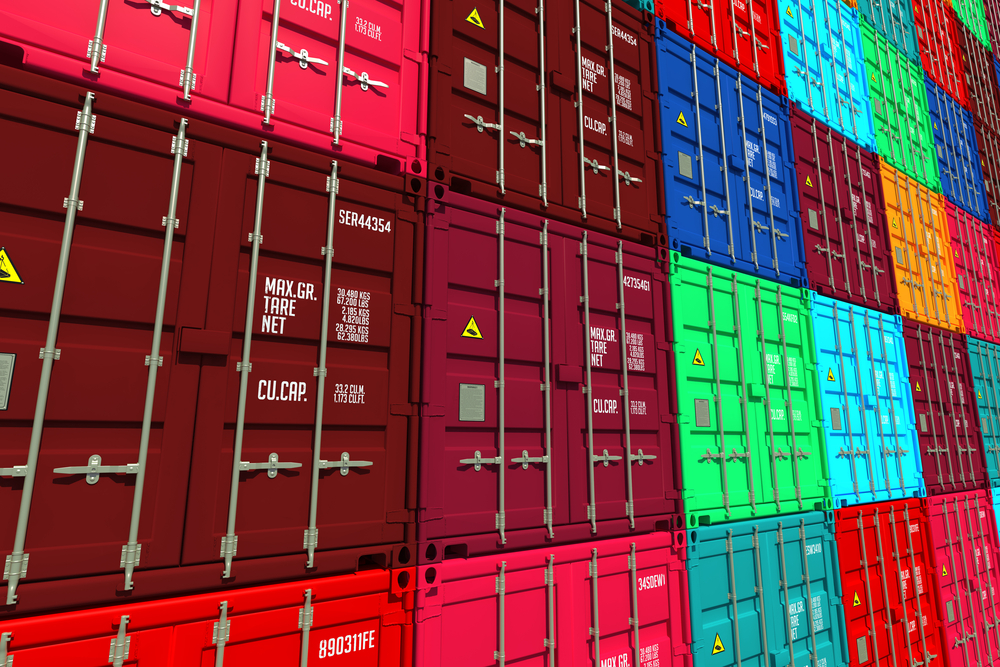Logistics pertains to the process in which product is delivered to the consumer. While this sounds rather simple, logistics can be a complicated and extremely valuable process to an organization, considering that customer fulfillment times are by far one of the most important aspects that need to be considered. Manufacturing and production are what create the product, but ultimately the consumer really stresses getting it to them on time – which is where the logistics process plays a substantial role.

Within logistics, it is not only the transportation of the product, but all of the preparation, handling, storage, and order planning that is included within the cost as well. For example, if you are manufacturing a product that is stored in a warehouse 100 miles away, you will have to have the product loaded onto a truck, transport the product to the warehouse, unload the truck, and essentially have fork lift operators put them back on the rack to be stored. This means preparation cost, transportation, handling, and storage. As the logistics sector is becoming a vital aspect of supply chains, many companies are spending more time on developing adequate logistical approaches.
Advantages of the Logistics Sector
Understanding the aspects of the logistics sector and the advantages that it can bring can be extremely insightful to your organization. Logistics has a series of advantages, which include the following:
- Enhanced Distribution Network – When having a good logistics system, with different logistics operators, you are able to optimize the times along with the distribution chain. There are a variety of companies out there that are available to take care of your logistics needs at a national and international level.
- Costs Reduction – Due to automated facilities and other globalized distribution systems, transport cost and handling costs are able to be reduced. A more efficient logistics chain will improve both final customer satisfaction and the service.
- Delivery Fulfillment – Delivery fulfillment is extremely important to modern-day customers. In an era of instant-gratification, consumers are looking for their product the second they push the “buy” button. Through adequate logistical processes, delivery times have been greatly reduced as compared to a few years ago.
While there are many advantageous associated with the logistics sector, there are also a variety of disadvantages as well.
Disadvantages of the Logistics Sector
In the logistics sector, there are different aspects to consider that have a great influence. This can be globalization, technology, consumer evolution, legal aspects, or government policies. These aspects directly influence the logistics sector and may hinder its ability to thrive. Here are a few of the disadvantages pertaining to the logistics sector:
- Multinational – One of the most consistent disadvantages pertains to the sector being covered with substantially larger companies. This makes it very difficult for medium and small companies to have access to this, due to the costs associated with it.
- Cost of Transport – A greater distance to travel will only make the cost greater as well. This will make it difficult to get a competitive price. Transportation is by far the greatest cost of the logistics sector.
- Legality - Barriers pertaining to entry and exit can also be a hurdle to overcome, considering that each country and state can have its own say on logistical practices. This is definitely a major concern for some areas within the United States, especially on some issues such as marijuana legalization.
A process that can greatly aid your manufacturing operation through cost reduction is PlanetTogether’s Advanced Planning and Scheduling (APS) Software. In order to get everything to run like clockwork, it is important to have accurate and adequate scheduling that will ultimately roll over into transportation of product and delivery fulfillment times. PlanetTogether’s Advanced Planning and Scheduling (APS) Software is a must for modern-day manufacturing facilities that are seeking to take their operation to the next level.
Advanced Planning & Scheduling Software
Advanced Planning and Scheduling (APS) software has become a must for modern-day manufacturing operations due to customer demand for increased product mix and fast delivery combined with downward cost pressures. APS can be quickly integrated with a ERP/MRP software to fill gaps where these system lack planning and scheduling flexibility and accuracy. Advanced Planning and Scheduling (APS) helps planners save time while providing greater agility in updating ever-changing priorities, production schedules, and inventory plans.
- Create optimized schedules balancing production efficiency and delivery performance
- Maximize output on bottleneck resources to increase revenue
- Synchronize supply with demand to reduce inventories
- Provide company-wide visibility to capacity
- Enable scenario data-driven decision making
Implementation of Advanced Planning and Scheduling (APS) software will take your manufacturing operations to the next level of production efficiency, taking advantage of the operational data you already have in your ERP.
Related Capacity Planning Video
APS Resources